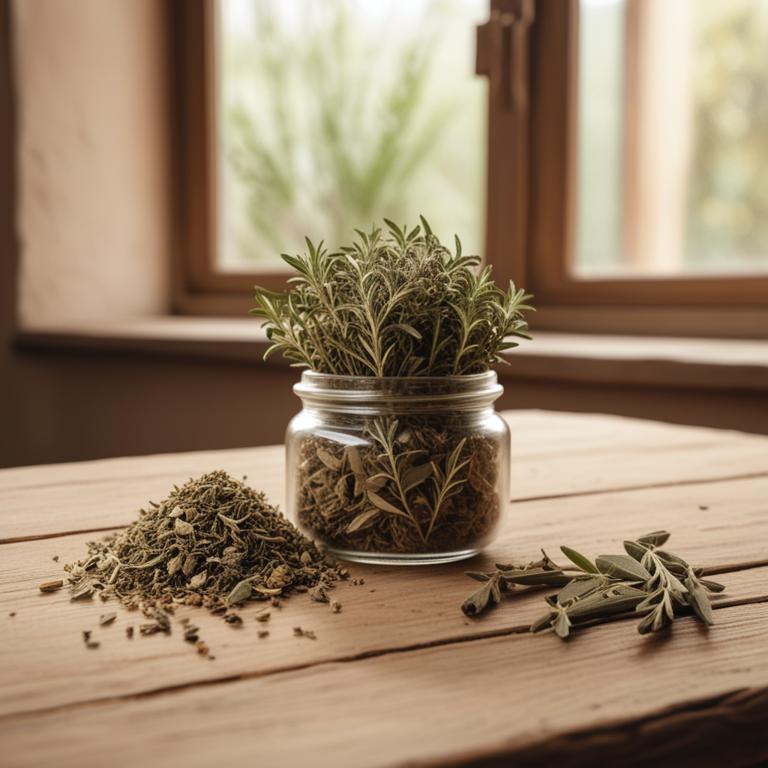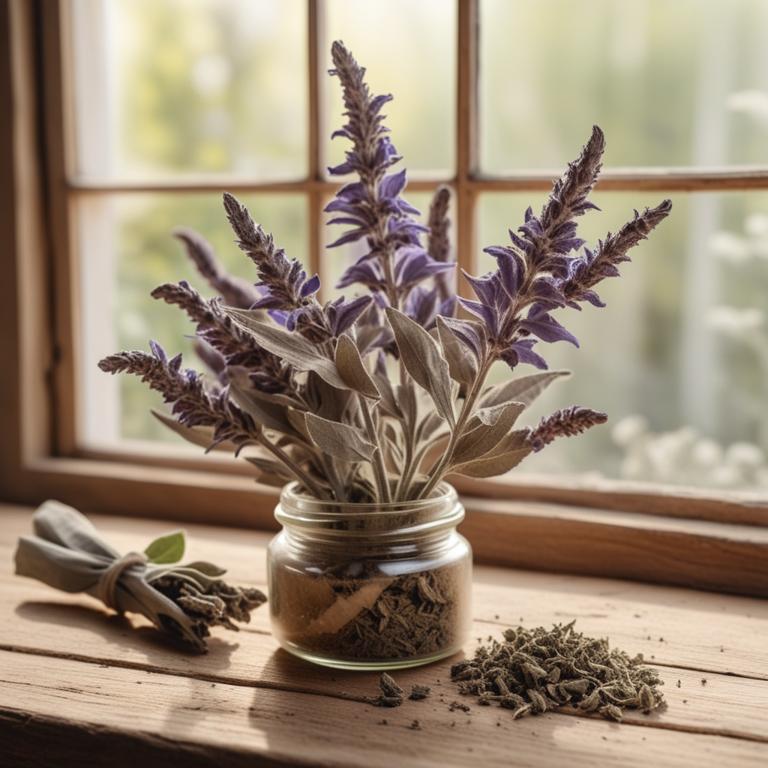Updated: Dec 1, 2024
Oral Thrush: Understanding the Causes, Medicinal Herbs, and Herbal Solutions for Relief
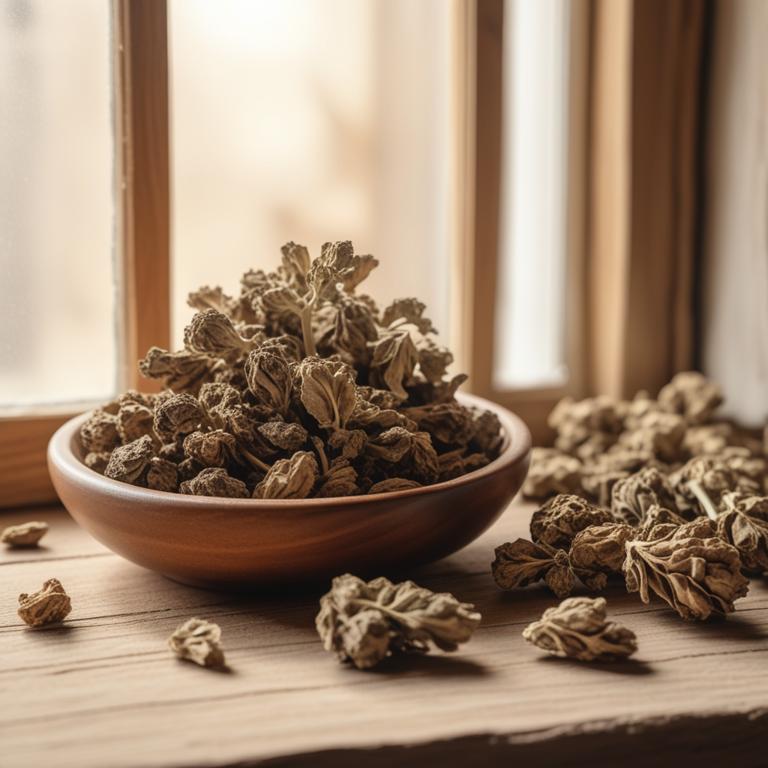
Oral thrush is a common fungal infection that affects the mouth, causing white patches to form on the tongue, cheeks, and gums.
It can be painful and make eating, drinking, and even speaking uncomfortable. If left untreated, oral thrush can lead to bad breath, difficulty swallowing, and a weakened immune system. This infection is usually caused by an overgrowth of yeast in the mouth, often due to antibiotics, diabetes, or a weakened immune system. To treat oral thrush, some people turn to herbal remedies.
For example, tea tree oil, which has antifungal properties, can be applied to the affected areas to help kill the fungus. Another herb, oregano, has been shown to have antibacterial and antifungal properties, making it a potential treatment for oral thrush. Some people also use slippery elm to soothe the mouth and reduce inflammation. Herbal teas, such as those made from echinacea or calendula, can be used to help boost the immune system and fight off the infection. These teas can be consumed throughout the day to help alleviate symptoms and promote healing.
Additionally, some herbal preparations, like ointments or mouthwashes, can be applied directly to the affected areas to help combat the fungus.
Table of Contents
What causes the occurrence of oral thrush?
The main causes of oral thrush are related to a combination of factors that can affect the balance of good and bad bacteria in the mouth.
One of the main causes is HIV/AIDS, a condition that weakens the immune system and makes it harder for the body to fight off infections. People with HIV/AIDS are more likely to develop oral thrush because their bodies can't produce enough antibodies to fight off the Candida fungus that causes the infection. Another common cause is the use of antibiotics, which can kill off the good bacteria in the mouth that help keep Candida under control. When this balance is disrupted, Candida can overgrow and cause oral thrush. People who take antibiotics for a long time or have recurring infections may be more likely to develop oral thrush. Diabetes is also a risk factor for oral thrush.
People with diabetes are more prone to infections, including oral thrush, because high blood sugar levels can provide a fertile ground for Candida to grow. Poor oral hygiene is another cause, as not brushing and flossing regularly can allow Candida to build up in the mouth. Corticosteroid inhalers, which are used to treat asthma and other respiratory conditions, can also contribute to oral thrush. These inhalers can push Candida deep into the mouth, where it can cause an infection. Taking steroids, either orally or topically, can also increase the risk of oral thrush, as steroids can suppress the immune system and allow Candida to overgrow. It's worth noting that anyone can develop oral thrush, regardless of their health status, and it's not necessarily a sign of a serious underlying condition.
However, if you're experiencing symptoms of oral thrush, such as white patches on your tongue or cheeks, it's essential to see a doctor to get proper treatment and advice.
What advantages can be gained from using herbs for oral thrush?
Using herbs to treat oral thrush can bring several benefits.
These herbs have natural antifungal properties that can help reduce the growth of the fungus that causes thrush. They can also soothe and calm the mouth and throat, reducing discomfort and pain.
Some herbs can even help to balance the body's pH levels, creating an environment that's less favorable to the fungus. Additionally, these herbs are often gentle and non-irritating, making them a good choice for people who experience sensitivity or allergic reactions to other treatments. They can be used in various forms, such as teas, tinctures, or topical applications, making it easy to incorporate them into your daily routine.
Some herbs may also help to boost the immune system, which can aid in fighting off the infection.
What herbal remedies are commonly used to cure oral thrush?

Herbs can be a helpful addition to your treatment plan for oral thrush.
Oral thrush is a fungal infection that can cause white patches, redness, and discomfort in the mouth. Some herbs have properties that can help combat this infection. One such herb is Zingiber officinale, or ginger. Ginger has anti-inflammatory properties, which can help reduce swelling and pain in the mouth. It also has antimicrobial properties, which can help fight off the fungal infection that causes oral thrush. Echinacea purpurea, or coneflower, is another herb that can be beneficial. It has immune-boosting properties, which can help your body fight off the infection.
When your immune system is strong, it can more easily combat the fungus that causes oral thrush. Cinchona officinalis, or cinchona, is a herb that contains quinine, a natural antifungal agent. Quinine can help kill the fungus that causes oral thrush, reducing the symptoms and helping your mouth heal. Curcuma longa, or turmeric, has powerful antimicrobial properties that can help combat oral thrush. Turmeric contains a compound called curcumin, which can help reduce inflammation and fight off the fungus. Cinnamomum verum, or cinnamon, is another herb that can be helpful. It has antimicrobial properties, which can help fight off the fungal infection that causes oral thrush. Cinnamon can also help reduce inflammation and soothe the mouth.
When using herbs to treat oral thrush, it's essential to note that they should be used in combination with conventional treatment and under the guidance of a healthcare professional.
What are the commonly utilized herbal preparations for oral thrush?
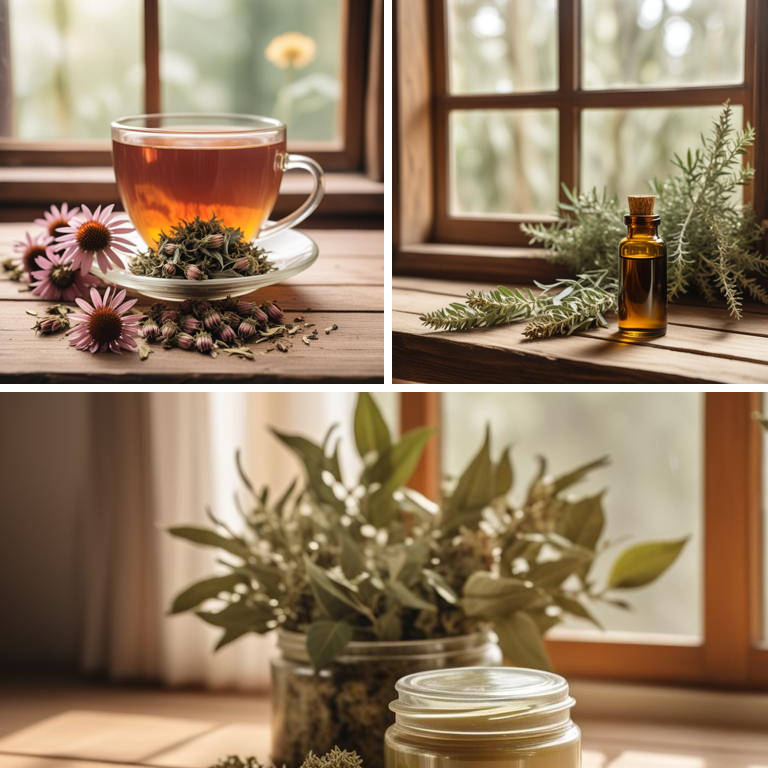
Oral thrush is a fungal infection that affects the mouth, causing white patches and discomfort.
Herbal preparations can be a helpful addition to treatment. A decoction of sage can be made by steeping dried sage leaves in boiling water. The antibacterial properties of sage can help reduce the infection. Tea made from the leaves of the echinacea plant has anti-inflammatory properties that can soothe irritated tissues in the mouth.
A tincture of myrrh can be applied directly to the affected area using a cotton swab. Myrrh has antifungal properties that can help combat the Candida fungus causing the infection. Applying a cream made from the plant aloe vera can help soothe and heal the mucous membranes in the mouth. Lozenges made from the herb calendula can be sucked on to release the antifungal properties of the plant, helping to clear the infection.
These herbal preparations can be used to support conventional treatment and help manage the symptoms of oral thrush.
Additional Resources:
What herbs are contraindicated in cases of oral thrush?
If you have oral thrush, it's best to be careful with the herbs you use.
Rosmarinus officinalis, also known as rosemary, can cause mouth sores, which can make oral thrush worse. When you have oral thrush, your mouth is already sensitive and prone to irritation. Adding rosemary to the mix can cause more discomfort and make it harder to heal. Thymus vulgaris, or thyme, can also be a problem. Thyme has compounds that can dry out your mouth, making it harder for your body to fight the infection that's causing oral thrush.
This can slow down the healing process and make symptoms worse. Silybum marianum, milk thistle, might seem like a harmless herb, but it can actually irritate your mouth and throat, making oral thrush symptoms worse. Allium sativum, or garlic, is another herb to be cautious with. Garlic contains compounds that can be harsh on your mouth and throat, causing more irritation and discomfort when you already have oral thrush. Rhus toxicodendron, poison ivy, might seem like a plant to avoid in general, but it's especially bad for people with oral thrush.
Rhus toxicodendron can cause a severe allergic reaction in the mouth and throat, making oral thrush symptoms unbearable.
FAQ
Are there any specific herbs that can prevent oral thrush?
Some herbs, like tea tree oil and neem, may help prevent oral thrush due to their antifungal properties.
These herbs have been traditionally used to combat fungal infections and may aid in maintaining a healthy oral environment.
However, more research is needed to confirm their effectiveness in preventing oral thrush.
Is it safe to use herbal remedies for oral thrush during pregnancy?
During pregnancy, it's generally not recommended to use herbal remedies for oral thrush.
Some herbs can interact with medications or have unknown effects on the developing fetus. If you're experiencing oral thrush symptoms, talk to your healthcare provider about safe treatment options.
They may prescribe a medicated lozenge or cream to help clear up the infection.
Are there any herbs that can reduce the frequency of oral thrush?
Some herbs, like probiotic-rich slippery elm and soothing licorice root, may help reduce the frequency of oral thrush.
These herbs create a protective barrier in the mouth and can help balance the bacteria that can cause thrush.
Some studies suggest that slippery elm and licorice root may ease symptoms and support oral health.
Can i combine different herbal remedies for oral thrush?
You can combine different herbal remedies for oral thrush, but be cautious.
For example, you might use tea tree oil and myrrh together to combat the fungus and reduce inflammation. However, the effectiveness depends on the specific remedies and their strengths.
Always dilute the oils and use them in moderation to avoid irritation.
Related Articles
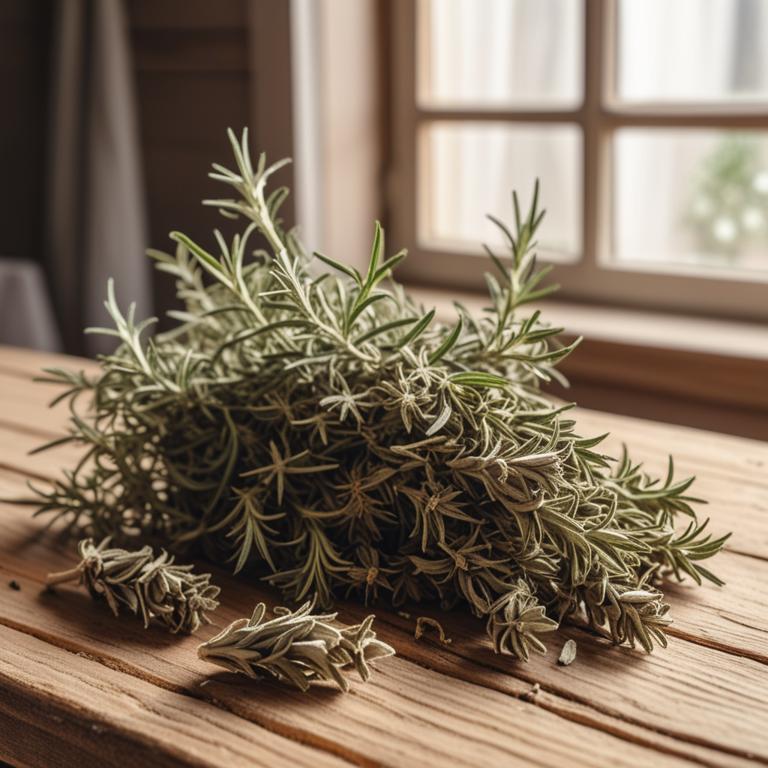
Dry Hair: Causes, Medicinal Herbs, and Herbal Preparations for Healthy Locks
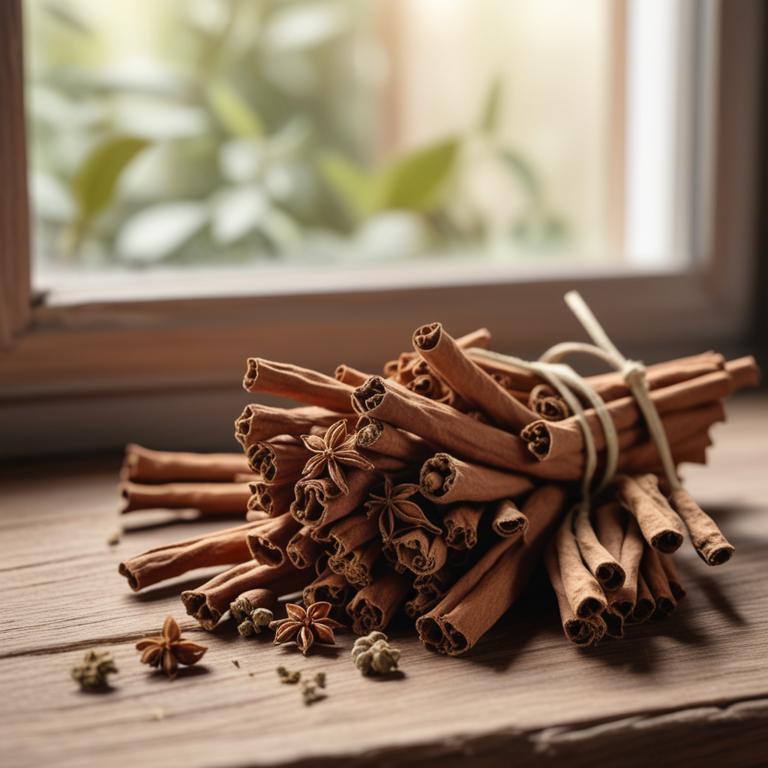
Oral Thrush: Understanding the Causes, Medicinal Herbs, and Herbal Solutions for Relief
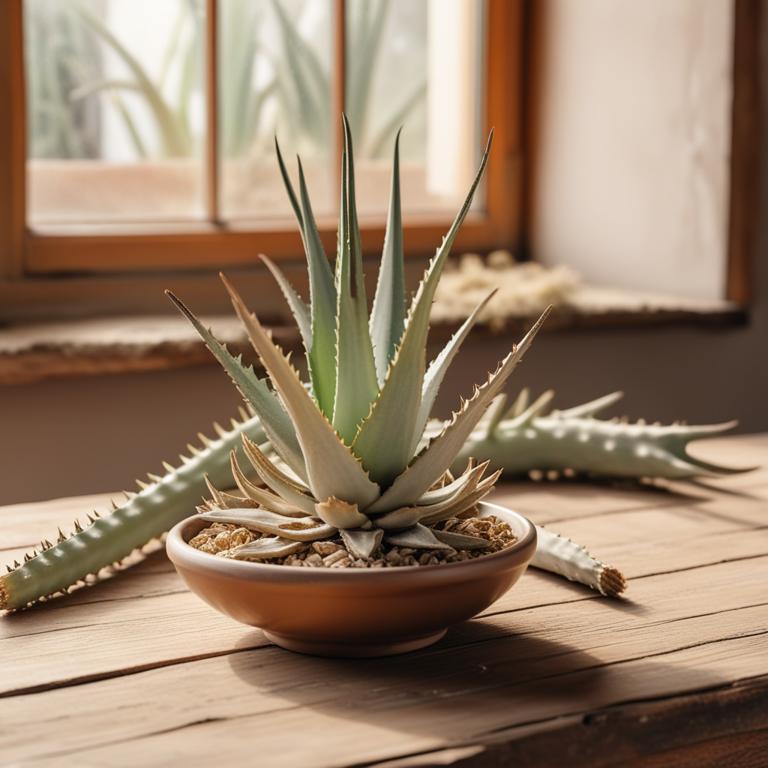
Natural Treatments for Open Wounds: Causes, Medicinal Herbs, and Preparations

The Causes and Treatment of Excessive Sweating with Medicinal Herbs and Herbal Remedies
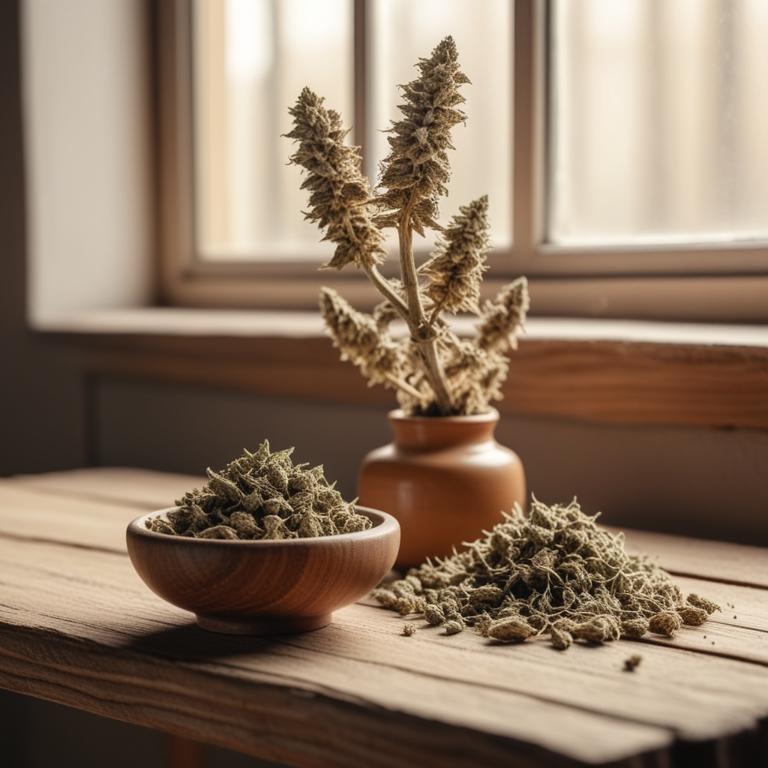
Dry Scalp and Herbal Remedies: Understanding Causes and Treatment Options
